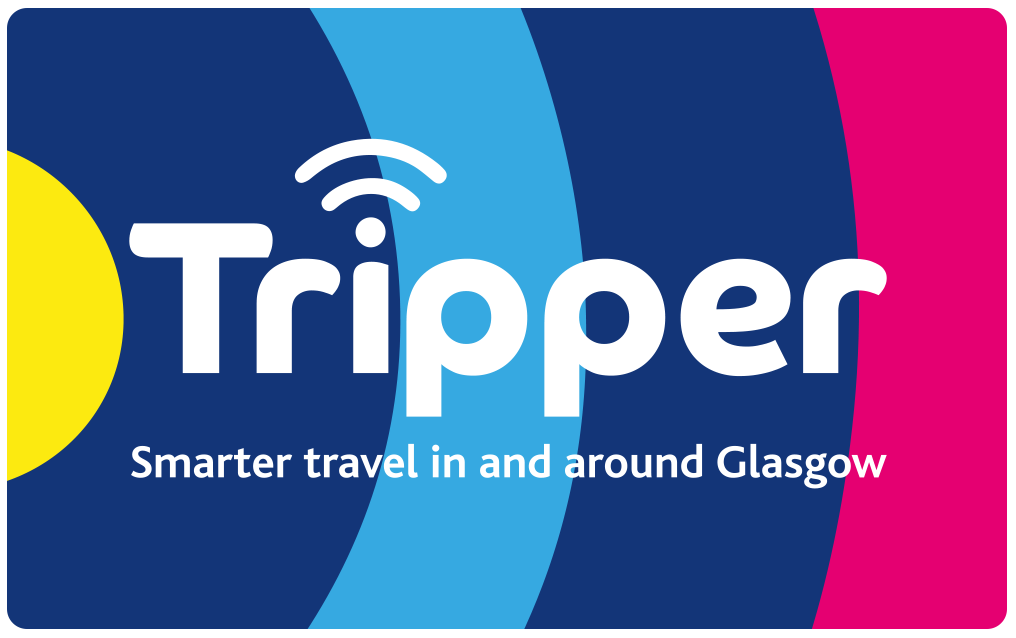Nevis Technologies, the public/private joint venture company formed between Rambus and Strathclyde Partnership for Transport (SPT), is the technology supplier/enabler for the newly-launched ‘Glasgow SmartZone’ smart ticketing deployment.
Glasgow SmartZone is a smart ticketing platform that allows passengers to use one smart card, called ‘Tripper,’ across multiple participating bus companies. Since bus operators in Glasgow operate in a deregulated market, there are multiple operators competing for customers. Previously a customer would need to purchase a ticket and wait for a specific bus company to arrive to begin their journey. Now, using the ‘Tripper’ smart card, adults and children can purchase a daily, weekly or monthly ticket and use this for travel with any of the participating bus companies.

Before the Tripper smart card was launched, passengers had less flexibility on which bus they could travel on unless they opted to pay for more expensive single ticket products. A passenger may want to board the first bus that comes along – and repeat this process at the end of the day to get home quickly. A return bus ticket costs less than a single ticket but to save time, and have the option to catch whichever bus comes first, they would need to purchase more two single tickets. Now passengers can catch any operator bus, pay the best value ticket price and save time waiting on specific carriers to arrive.
The Glasgow SmartZone deployment showcases Nevis Technologies’ capability to deliver truly interoperable travel for the end customer whilst also illustrating what can be achieved when multiple bus operators work together to reach commercial agreement. The deployment creates a common platform where they offer greater choice and flexibility for passengers and encourage increased patronage.
How Glasgow SmartZones Benefits Bus Operators
There are multiple benefits for bus operators participating in the Glasgow SmartZone scheme. Access to tickets will become easier, as they will soon be able to purchase either on the bus or online, the latter of which removes the need for “exact fare” on bus journeys. Bus travel becomes logistically easier, as with ‘Tripper,’ the passenger can hop on any bus, any number of times within Greater Glasgow. Since the choice of travel options is widened, and access to tickets made easier, the deployment is expected to lead to increased bus patronage.
The Glasgow SmartZone will also help streamline ticket management, with a single back office platform supporting multiple operators. In practical terms this means the Glasgow SmartZone is helping to enable true interoperability between operators. In addition, smart ticketing systems capture travel data – ensuring that bus operator is apportioned the correct revenue income. The Glasgow SmartZone is inclusive, allowing smaller bus operators to participate in a commercial ticketing deployment – so they too can benefit from increased patronage alongside larger operators.
Ultimately, with all operators working together in what remains a competitive environment, there is clearly enough benefit in deploying smart interoperable ticketing for the passenger, and ultimately the operators themselves.
Implementation Challenges
There are a number challenges in setting up a multiple-operator deployment and in such a short timescale. Nevis Technologies’ reputation for robust systems and rapid deployment for their other Scottish-based transport customers was a key factor in being chosen as the technology provider for the Tripper card. Bus operators including First Glasgow, McGill’s Buses, West Coast Motors, Whitelaws and Stagecoach worked together to agree a commercial model, with the Nevis single back office able to support both ticketing and revenue apportionment. But while patronage has been falling generally both in Scotland and other countries, the Glasgow SmartZone’s is looking to generate an increase in passenger numbers and ultimately revenue for transport bus operators. Through Rambus, Nevis is supplying the common back office platform called a Host Operating Processing System (HOPS), Card Management System (CMS) which includes a web retail system (WRS) enabling online purchase by customers, and the Tripper contactless smart cards.
Conclusion
Taking the bus in Glasgow was once a fairly complex process. Passengers were forced to either take one particular operator bus around the city, or buy multiple tickets for the same trip if the first bus home had a different operator. The launch of the Glasgow SmartZone has made taking the bus in Scotland’s biggest city simpler and expanded choice for passengers thanks to interoperable multi-operator ticketing delivered by Nevis Technologies.
